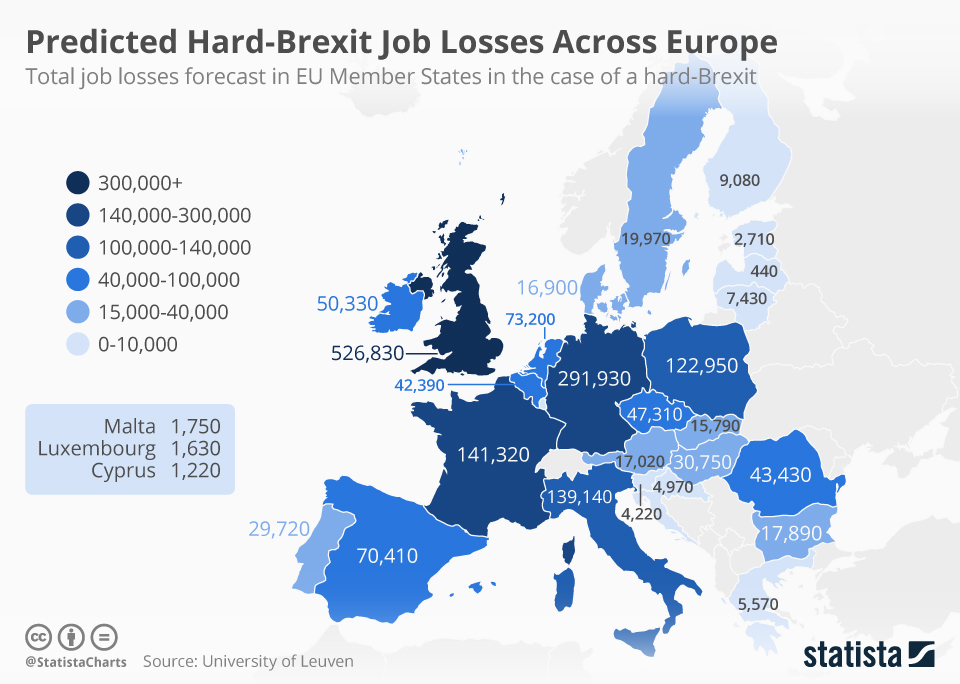September 4, 2019. Research has suggested that a ‘Cold Brexit’ will cause large job losses across Europe, not only in the Great Britain (see below). While in London the British Parliament last night increased efforts to stop the United Kingdom (UK) from leaving the European Union without an agreement, the debate about the role of migration for the Brexit decision continued. Migration was wrongly blamed to be the cause of economic challenges in the UK. Now a new study explained in the GLO Research for Policy Note on “Hate at first sight only. The presence of immigrants, electoral outcomes and policy insights” opens a new field of analysis. As the authors (GLO Fellows Eugenio Levi and Rama Dasi Mariani together with Fabrizio Patriarca) in their analysis of the British case find, hostility toward immigration is temporary: there is “hate at first sight” only.
Hate at first sight only. The presence of immigrants, electoral outcomes and policy insights.
by Eugenio Levi, Rama Dasi Mariani & Fabrizio Patriarca
- GLO Fellow Eugenio Levi (Free University of Bozen-Bolzano)
- GLO Fellow Rama Dasi Mariani (University of Rome “Tor Vergata”)
- Fabrizio Patriarca (University of Modena and Reggio Emilia)
“Most of the studies on how electoral outcomes in Western Europe and in the US are influenced by the presence of immigrants in the neighborhood provide evidence that living in an area with a greater number of immigrants increases the probability of voting for anti-immigrant parties. The immediate policy implication would be that people want to restrict immigration tout court. But is this so?
In a recent GLO Discussion Paper and forthcoming in the Journal of Population Economics, the authors contribute to the debate on this topic by analyzing the dynamic aspects related to this effect. This is to investigate if policies should be concerned with the time and geographical concentration of new arrivals more than on their number and focus on integration as well as coping ability of local populations. In particular, the study formulates the hypothesis that hostility toward immigration is temporary: there is “hate at first sight” only.”
Read the GLO Research for Policy Note for a quick update.
Read the full paper also: GLO Discussion Paper
“A study by Leuven University in Belgium has predicted that the 1.2 million jobs will be lost across Europe in the case of a hard-Brexit. Unsurprisingly, the United Kingdom is expected to be the country that will suffer the most with over 500,000 jobs set to be lost. Germany would also be significantly impacted with just under 292,000 redundancies while France and Italy would lose 141,320 and 139,140 jobs respectively. ” statista Source.

Ends;

